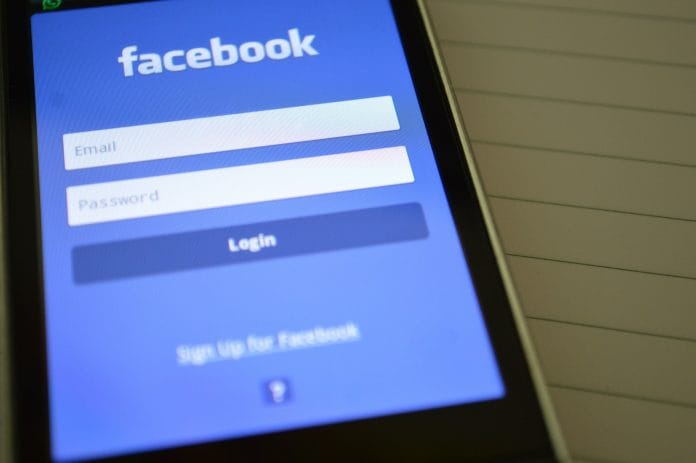New Delhi: A former Facebook data scientist has claimed that the social media giant had in 2019 delayed removing a network of “fake accounts” allegedly linked to a BJP MP, even as it took immediate action against three other such networks.
The three included one network purportedly supporting the BJP and two pro-Congress, and all four were discovered at the same time, Sophie Zhang told ThePrint.
The four networks, Zhang claimed, comprised inauthentic accounts that were boosting political messages to support specific politicians in violation of Facebook guidelines. They were not found to be spreading hate speech or misinformation, she added.
Zhang did not disclose the name of the BJP MP. There is no evidence, she said, that politicians were backing the three other networks.
Zhang, who worked with Facebook from January 2018 to September 2020, told ThePrint she discovered the networks around December 2019. While the three other networks were removed that month, she claimed the fourth was active when she left Facebook in September 2020.
She went on to cite a response given by Facebook to The Guardian for an April 2021 report, where it said action was taken, to suggest the measure may have been temporary.
Facebook told the British daily that “a portion of the cluster had been disabled in May 2020, and that it was continuing to monitor the rest of the network’s accounts”. “It later said that a ‘specialist team’ had reviewed the accounts and that a small minority of them had not met the threshold for removal but were nevertheless now inactive,” the report added.
Zhang told ThePrint that even if the accounts were removed, they had “returned” within the next four months.
Zhang, who was tasked with weeding out fake engagements (likes, shares that were not organic), was allegedly fired by Facebook for not doing enough work. She has since emerged as a whistleblower on what she describes as widespread use of the platform for political manipulation campaigns.
Reached for comment, Facebook told ThePrint that it “fundamentally” disagrees with “Ms Zhang’s characterisation of our priorities and efforts to root out abuse on our platform”.
“We aggressively go after abuse around the world and have specialised teams focused on this work,” said a Facebook spokesperson in an emailed statement.
“As a result, we’ve already taken down more than 150 networks of coordinated inauthentic behaviour. Around half of them were domestic networks that operated in countries around the world, including those in India. Combatting coordinated inauthentic behavior is our priority,” the spokesperson added. “We’re also addressing the problems of spam and fake engagement. We investigate each issue before taking action or making public claims about them.”
Facebook faced similar allegations last year when the US-based Wall Street Journal reported that the company refused to act against hate speech propagated by a BJP leader on the platform, in an alleged bid to avoid damaging its business prospects in its biggest market of India.
The report also claimed that some controversial posts involving the leader and two other party colleagues were only removed when the paper’s reporters raised queries about them.
The company had denied the allegations then as well.
Also Read: It’s not personal, just business — Facebook-WSJ controversy isn’t unique to India, BJP
Discovering fake accounts
Facebook describes a fake account as one “where someone is pretending to be something or someone that doesn’t exist. Fake accounts can include accounts for fake or made-up people, pets, celebrities or organisations”.
It is against Facebook Community Standards to use fake accounts to boost the popularity of content.
Asked how fake accounts are identified, Zhang said a very recent account creation date, absence of “friends” or information, and the lack of a profile picture, or computer-generated display photos are potential red flags.
Facebook also looks at IP addresses, and “publicly available website registration information”.
According to The Guardian report, accounts flagged thus are “sent through an identity ‘checkpoint’ — a process by which suspicious accounts are locked unless and until the account owner can provide proof of their identity”.
Also Read: Facebook turned blind eye to BJP leader’s hate speech to protect its business, says WSJ report
‘Unusual activity’
Speaking to ThePrint, Zhang said the four India-linked networks discovered in 2019 ranged in size from several dozen accounts to several hundred accounts. The network allegedly linked to the BJP MP comprised 54 accounts, she added.
The largest network had 1,090 accounts and displayed “unusual” activity. It was first detected supporting the Congress in Punjab. Then, during the 2020 Delhi assembly elections, it started supporting the AAP, Zhang claimed.
To this end, it employed an unusual tactic to gain credibility by pretending to support BJP and PM Modi, she alleged. For example, the content would have a narrative like — “I voted for Modi, but Modi is getting it done nationally. Now it is time to support Arvind Kejriwal in Delhi”, Zhang said.
According to Zhang, such activity could have resulted from multiple possibilities — perhaps the same marketing firm was unknowingly hired by both parties or it was probably just a coincidence, she said.
India, she added, is considered “quite important” by Facebook. When she discovered the networks, she said, it “quickly was agreed” that the presence of the networks was “bad” and that all four networks should be taken down.
“We took three of them down and we were about to take the fourth [down] and suddenly we stopped. Because we suddenly realised that the fourth network of fake accounts was directly run by a member of the Lok Sabha… or someone close to him,” she alleged.
According to Zhang, she asked “repeatedly” if a decision can be made about this fourth network. “I was never given any answer or even acknowledgement that I was asking these questions” despite sending emails and conversations with multiple people, she claimed.
(Edited by Sunanda Ranjan)
Also Read: Facebook Oversight Board says post critiquing RSS, BJP highlights minority concerns, allows it






